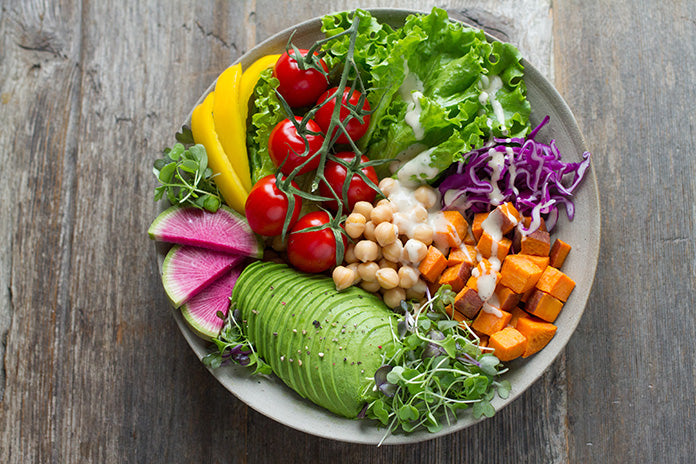It can feel good to be in control. We like to feel secure about our finances, our families, our jobs, and of course, our health. However, could there be a fine line between control and compulsive behavior? (OCD, anyone?) Can we do the right thing in a wrong way? Is it possible to unintentionally make yourself sick, in the attempt to find the perfect healthy diet? Well, that's orthorexia!
 Practically speaking, the exclusion of certain foods or dietary practices is not primarily rooted from a sense of wanting health. Rather its stems more from an emotional fear of taking something that may deter them from achieving their health goals. In short, attaining a perfect diet trumps all else, and every other aspect of life revolves around this one end.
Practically speaking, the exclusion of certain foods or dietary practices is not primarily rooted from a sense of wanting health. Rather its stems more from an emotional fear of taking something that may deter them from achieving their health goals. In short, attaining a perfect diet trumps all else, and every other aspect of life revolves around this one end.

What Is Orthorexia?
Orthorexia nervosa is claimed to be a psychiatric condition originating from the Greek ortho meaning “correct”, and orexia meaning “appetite.” Coined in 1997 by the American doctor Steven Bratman, orthorexia can be defined essentially as a pathological “fixation on the virtue of food or unhealthy obsession with healthy eating." Despite this, you won't even find it listed in the DSM (2022), as you would anorexia or bulimia nervosa conditions. (1) Essentially, it refers to the obsession over "self-righteous" eating that many may possess in their pursuit of their ideal dietary program. It focuses on the quality and variety of the food consumed as the chief criteria of healthy choices of food. (2)What Does Orthorexia Look Like?
They will avoid foods with artificial colors, flavorings, preservatives, pesticides, genetically modified ingredients, unhealthy fats, and excessive salt or sugar. Granted, at first glance these don’t seem to be negative health goals. Quite the contrary! They would naturally fit into what most would call a healthful dietary program. But orthorexia can take things to extremes. Consequently, kitchen tool uses and ingredients can become ritualistic. Self-imposed restrictions, with an exaggerated need for self-care, can begin to overwhelm the pleasure of positive health choices. Even the precision for optimal calorie intake can cause neglect and disaffection of social relationships. Practically speaking, the exclusion of certain foods or dietary practices is not primarily rooted from a sense of wanting health. Rather its stems more from an emotional fear of taking something that may deter them from achieving their health goals. In short, attaining a perfect diet trumps all else, and every other aspect of life revolves around this one end.
Practically speaking, the exclusion of certain foods or dietary practices is not primarily rooted from a sense of wanting health. Rather its stems more from an emotional fear of taking something that may deter them from achieving their health goals. In short, attaining a perfect diet trumps all else, and every other aspect of life revolves around this one end.
Where’s The Balance?
Let’s face it, we all want health, although some are willing to take strides to get it more than others. Sometimes living healthfully can look a lot like striving to jump over the hurdles of contemporary advice on what constitutes health. In the battle of how to appropriately apply information, though, it's important to not lose sight of the goal. No need to create division in our attempts to model what we believe to be the most healthful diet. In our practices of food exclusion, let us avoid intentionally condemning others for the options they choose at the table. (3) Overall, we can send a powerful message of our food values by our consistent yet quiet witness at each fellowship meal. Lastly, with the intense cravings for the latest nutrient dense superfood dish, let's never forget to first ask ourselves if the food is visually appealing and properly assembled. Plus, the surprise may come that it mattered more about what you did with what foods you had than the food itself. As an old health reformer wisely said, “I again say, more depends upon thoughtfulness and skill in the preparation of the articles you have than of the variety or quality” (4). Don’t let your love for foods overshadow the main ingredient of every healthy meal: TLC (Tender Loving Care). Sources: Nutrition Facts GreenMedInfo GreenMedInfo Ellen White





